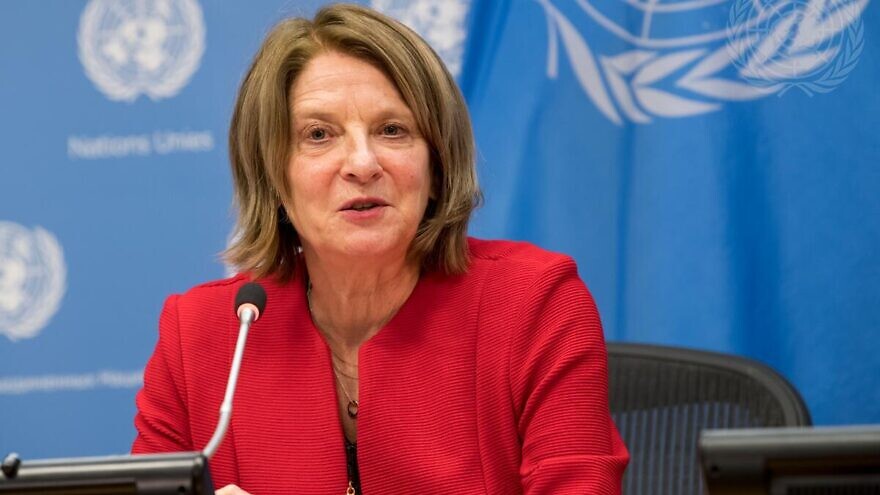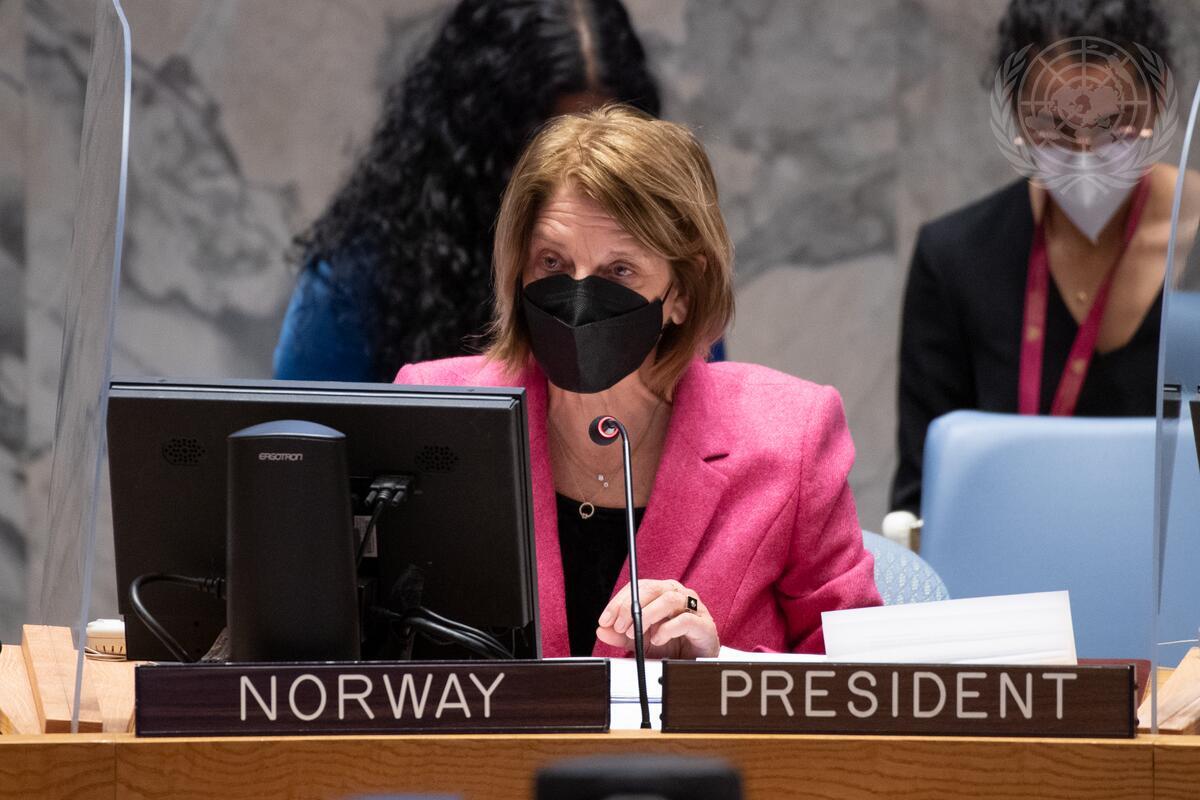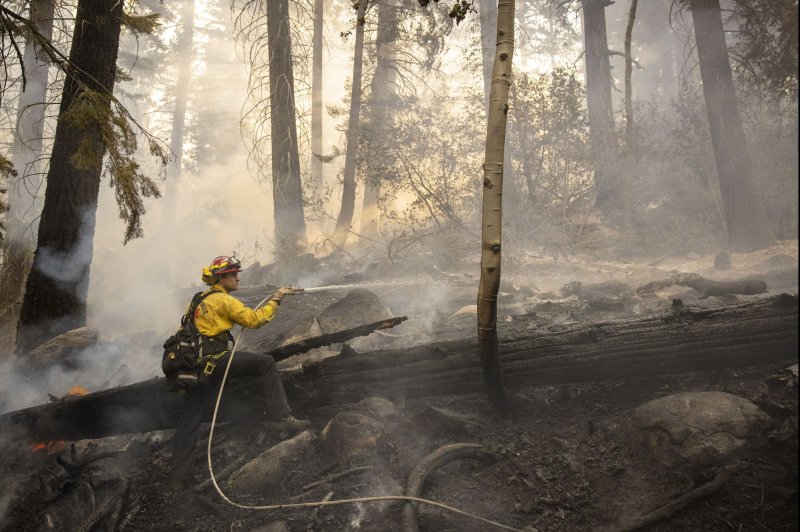Germany has declined to join allies such as the US and UK in shipping weapons to Ukraine. The country faces an unpredictable buildup of Russian troops on its borders — and there is precedent for armed aggression.

Foreign Minister Baerbock says weapons exports to Ukraine aren't a good idea right now
It hasn't taken long to put the new German government's talk of a bolder and more values-based foreign policy to the test. After just six weeks in power, it finds itself confronted by Russia's military moves against Ukraine, which fears another attack from its bigger and more powerful neighbor.
Germany and its allies are struggling to agree on a response to Russia's unclear intentions. German policymakers, including within the three-party coalition government, are also debating among themselves.
On Tuesday, Chancellor Olaf Scholz, of the Social Democrats (SPD), said Russia would pay a "high price" in the event of an invasion of Ukraine. On Wednesday, Scholz reiterated that silence on the issue of Ukraine was not an option. His foreign minister, the Greens' Annalena Baerbock, has made similar expressions of solidarity with Ukraine but rejected its latest request for weapons deliveries.
"We are prepared to have a serious dialogue with Russia to defuse the highly dangerous situation right now because diplomacy is the only viable way," Baerbock told reporters on Monday during a visit to Kyiv, the Ukrainian capital.
Symbolic or strategic
Both the United States and the United Kingdom have announced arms deliveries, mostly handguns, ammunition and anti-tank weapons. A group of US senators visiting Ukraine earlier this week promised more weapons would be on the way.
German government officials have expressed concern that such deliveries could push tensions higher and make negotiations more difficult.
In their coalition agreement, the center-left SPD, the Greens and the neoliberal Free Democrats (FDP) agreed on a restrictive arms export policy that does not allow any weapons deliveries to crisis regions.
Baerbock said her government's decision on weapons had a historical dimension — a reference to Germany's invasion of the Soviet Union during the Second World War.
"The idea that Germany delivers weapons that could then be used to kill Russians is very difficult to stomach for many Germans," Marcel Dirsus, a nonresident fellow at the Institute for Security Policy at Kiel University (ISPK), told DW.
Germany remains one of the world's top arms producers and exporters, with sales increasing 21% from 2016 to 2020, according to the Stockholm International Peace Research Institute. Its largest customers were South Korea, Algeria, and Egypt.
Ukraine is also a buyer. In 2020 and through the first half of 2021, Germany approved 97 exports totaling 5.2 million euros ($5.8 million), according to government reporting. These were mostly sidearms, diving equipment, and communications devices.
Ukrainian officials want to go bigger, most recently asking for warships and air defense systems. While Germany often cites its own belligerent history as grounds for sidestepping the military question, Ukraine is leaning into it.
"This responsibility should apply to the Ukrainian people, who lost at least 8 million lives during the Nazi occupation of Ukraine," Ukraine's ambassador to Germany, Andrij Melnyk, told the DPA news agency.
Though weapons would be a strong show of support, Dirsus doubts that they would change Ukraine's prospects against a bigger and better-equipped foe.
"The Russian government would be more impressed by the threat of heavy economic consequences than 2,000 anti-tank weapons," he said.
Defensive weapons
Talk of weapons and military intervention can be politically dangerous in Germany. The Greens' Robert Habeck found that out last year when he supported sending "defensive" weapons to Ukraine. The current vice-chancellor and economics minister was widely criticized at the time and later claimed he meant demining equipment.
What makes a weapon "defensive" can be in the eye of the beholder, and at least some members of the governing parties have begun to express interest in defining what that is. Marie-Agnes Strack-Zimmermann, the FDP chair of the defense committee and an opponent of weapons deliveries to Ukraine, told the Bild tabloid that the current stance should be "reconsidered."
Critics argue that, in wars and conflicts, arms developed for defensive purposes, such as anti-tank and anti-aircraft weapons, have also been used offensively. What seems to be decisive here is not the original design idea for a weapon, but the will of the user for the respective application.
Germany's previous government, led by the Christian Democrats (CDU), made a vague commitment to the United States to punish Russia for any aggression. Now in opposition, some CDU members are criticizing the new government for "hiding behind" its restrictive arms control policy.
"We cannot reject Ukraine's request for defensive weapons that could fend off a possible Russian attack," Henning Otte, who sits on the Bundestag's defense committee, told Bild.
Norbert Röttgen, the CDU's parliamentary foreign policy spokesman, told CNN's Christiane Amanpour on Monday that "nothing must be taken off the table," but acknowledged that military force was not standing behind diplomatic efforts.
"We will not fight militarily, but, short of military tools, we will be ready to apply any tool we are able to have control of," he said.
Gas deliveries as a weapon?
When it came to power, the SPD-led government made big promises to boost the country's role on the world stage, especially in defense and security matters. With a particular nudge from the Greens side of the coalition, the new government has pledged to take human rights and democratic values more into account when setting relations with countries like China and Russia, which have been long viewed through a largely economic lens.
Most recently, Scholz appeared to indicate that the Kremlin's aggression would also have consequences for the already-completed Nord Stream 2 pipeline, which is ready to pump more Russian gas to Germany once the German regulatory body gives the go-ahead.
"Everything is up for discussion if it comes to a military intervention against Ukraine," Scholz told reporters on Tuesday.
So far the SPD has largely upheld the previous government's position that the pipeline is a commercial project that needs to be protected from political turmoil. However, the Greens and FDP have long opposed the project.
Edited by: Rina Goldenberg
While you're here: Every Tuesday, DW editors round up what is happening in German politics and society. You can sign up herefor the weekly email newsletter Berlin Briefing, to stay on top of developments as Germany enters the post-Merkel era.
























